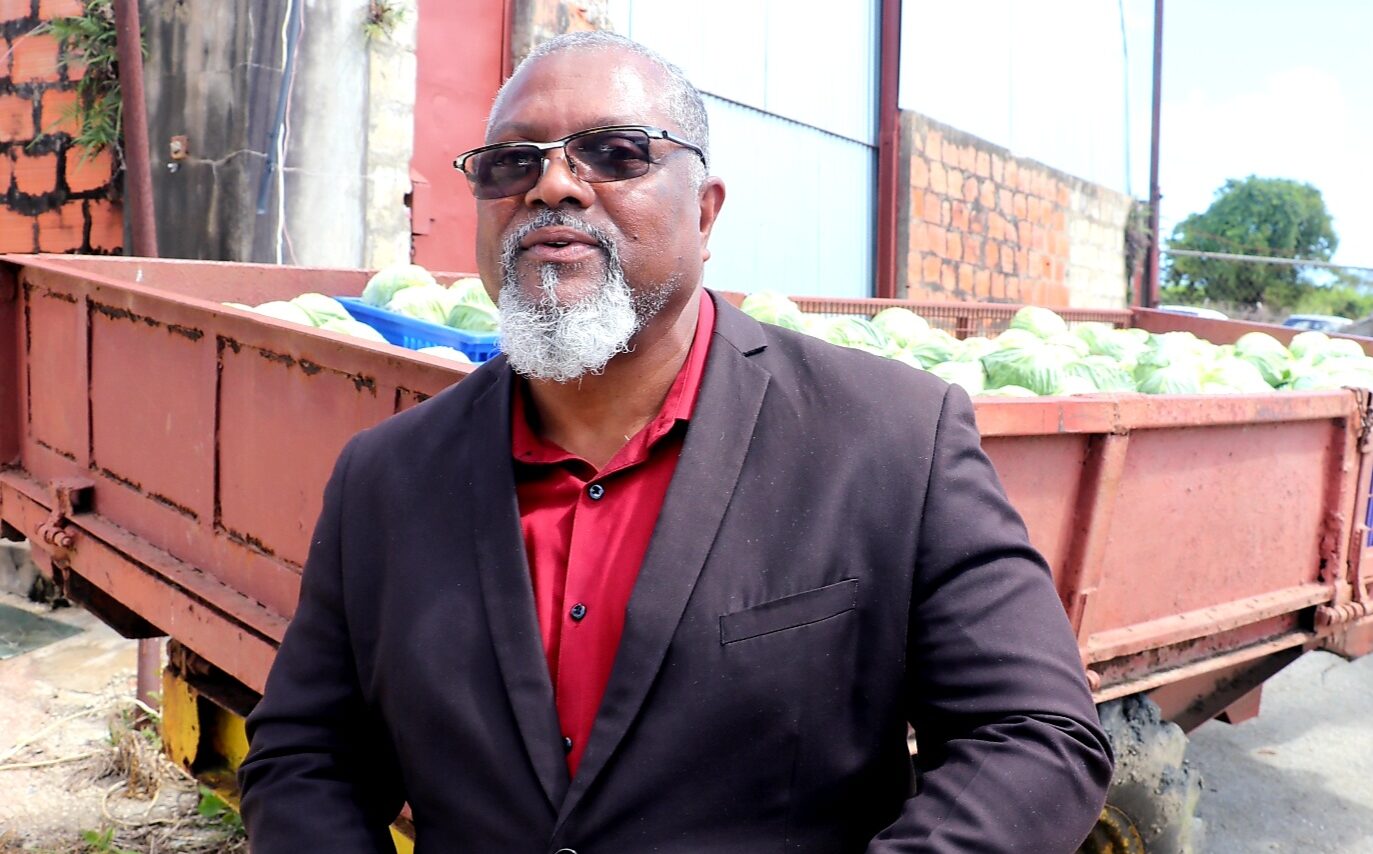A drone surveillance and mapping system is to go into force later this year under a comprehensive action plan to fight crop and animal theft, Minister of Agriculture Indar Weir disclosed on Wednesday.
He said funding for the much-touted crop protection system will be secured for the new fiscal year which begins on April 1.
Weir’s disclosure in an interview with Barbados TODAY came a day after police said two men suspected of stealing from a yam field at Three Houses Plantation, St Philip were fatally shot by a farmer who caught them harvesting his crops. Their deaths unearthed reports of a string of thefts in surrounding small holdings that have devastated small farmers who have lost not only produce but irrigation lines.
Weir said on Wednesday that unless some Barbadians stop covering up the crime, it will continue unabated.
He said while the government will play its part in addressing crop and livestock stealing, Barbadians must support those efforts by ensuring then when buying produce from individuals, they demand proof that the property was lawfully acquired.
“Intelligence is the key in stemming praedial larceny,” Weir insisted as he disclosed that funding for the acquisition of the drones has been provided for in the Estimates of Revenue and Expenditure.
“If we can get the drones in place as quickly as possible, the next step…our crop surveillance… we have to ramp up our joint efforts between the police, the Barbados Defence Force and the ministry,” he told Barbados TODAY.
Weir said intensifying that collaboration under Operation Bird’s Eye – a partnership between the Barbados Police Service and the Barbados Defence Force to patrol targeted areas on the ground – could see heightened monitoring of farms, especially those that experience praedial larceny.
With the Protection of Agricultural Products Act of 2022 having already been proclaimed, the introduction of drones would buttress the legislation by locating farms across the entire island to determine where crops are and feed that information to the police. Weir said the mapping would also allow the government to determine where it can put more land into cultivation.
He stressed that the law, which imposes a fine of $100 000 or imprisonment for five years or both for anyone convicted of failing to show a receipt, delivery note, bill of lading, or proof of ownership or lawful possession of agricultural products when requested to do so, has now to be enforced by the police.
“The Act has been proclaimed and people need to play their part in asking for a receipt or other proof to show where the goods come from before purchasing.
“It comes down to Barbadians participating by insisting on seeing the source of material being sold, where it was grown and purchased,” the agriculture minister said, adding that he wants to have a barcode system in place, where chips can be embedded in livestock to monitor or track where the animals are.
The United Nations Food and Agriculture Organisation (FAO) is currently working with the farm ministry on a livestock tracking project that is being piloted at Greenland Agricultural Station, St Andrew.
On Tuesday, a Three Houses farmer accused farmers and vendors from outside the area of being involved in the rash of thefts in the community.
He said he was not convinced the stealing, which he said had adversely affected him and five other farmers, was being committed by the same individual or individuals.
In 2022, a farmer at River Plantation in St Philip lost 22 Blackbelly Sheep at the hands of criminals.
Barbados Agricultural Society (BAS) Chief Executive Officer James Paul told Barbados TODAY on Tuesday that people must rid themselves of the mindset that they have a right to deprive others of their property. He added that those who buy the stolen produce were just as guilty as those who stole it in the first place.
emmanueljoseph@barbadostoday.bb





